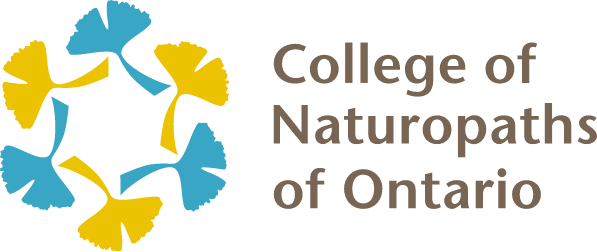Ordering Laboratory Tests
Under the Laboratory and Specimen Collection Centre Licensing Act, 1990 (LSCCLA), Registrants are authorised to requisition the collection of specimens from a patient in a specimen collection centre or laboratory. Registrants can only requisition a test from a laboratory licensed under the LSCCLA. The authority is limited to the tests listed below.
Registrants are not permitted to:
• requisition a specimen for any other purposes than the performance of these tests,
• requisition any specimen other than a specimen necessary for one of these tests, or
• collect a blood specimen for tests other than the seven tests that may be performed in office.
Registrants are also prohibited from sending specimens to laboratories not licensed under the LSCCLA.
-
Lab tests performed on blood
1. 17-OH-Progesterone.
2. 5α-dihydrotestosterone (DHT).
3. Adrenocorticotropic Hormone ACTH.
4. Alanine Transaminase (ALT, SGPT).
5. Albumin, qualitative.
6. Aldosterone.
7. Allergen Specific IgG Antibody.
8. Allergy testing (ELISA).
9. Allergy testing (IgE specific, RAST).
10. Alpha tocopherol – Vitamin E.
11. Amino Acids – Total Fractionation.
12. Ammonia.
13. Amylase.
14. Androstenedione.
15. Antibody Screening Food IgG.
16. Antibody Screening IgA.
17. Antibody Screening IgM.
18. Antigen Leukocyte Antibody.
19. Anti-Müllerian Hormone (AMH).
20. Anti-Nuclear Antibody.
21. Anti-Parietal Cell Antibody.
22. Anti-Reticulin Antibodies.
23. Apolipoprotein A1.
24. Apolipoprotein B.
25. Ascorbic Acid (ascorbate) Vitamin C.
26. Aspartate Transaminase.
27. Beta-Carotene (Carotene).
28. Bilirubin (total, total conjugated, unconjugated, direct and indirect).
29. Blood Group ABO and RhD.
30. Blood Urea Nitrogen (BUN).
31. Bun / Creatinine Ratio.
32. CA125.
33. CA15-3.
34. Calcium, Calcium ionized.
35. Candida Antibodies (IgM, IgG, IgA).
36. Carbon Dioxide Bicarbonate.
37. Carcinoembryonic Antigen.
38. Ceruloplasmin.
39. Chloride.
40. Cholinesterase, pseudo or true.
41. Coenzyme Q10.
42. Complement proteins – C3 (B1C) and Complement proteins – C4 (B1E).
43. Complete Blood Count.
44. Copper.
45. Cortisol – bound and unbound, no differentiation.
46. C-peptide immunoreactivity.
47. C-Reactive Protein (CRP).
48. C-Reactive Protein – High Sensitivity.
49. Creatine Phosphokinase.
50. Creatinine.
51. Creatinine Clearance.
52. Cystathionine.
53. Dehydroepiandrosterone sulphate (DHEAS).
54. Digitalis purpurea (digoxin).
55. Electrophoresis – including total protein.
56. Endomysial Antibody.
57. Erythrocyte Sedimentation Rate (ESR) (Sedimentation Rate).
58. Estradiol.
59. Estriol.
60. Estrogen.
61. Estrone.
62. Fatty acids, free.
63. Ferritin.
64. Fibrinogen semi-quantitative and quantitative.
65. Folate.
66. FSH.
67. Galectin 3.
68. Gamma-glutamyl Transferase (GGT) / GG transpeptidase (GGTP).
69. Gliadin Antibodies (IgG, IgA).
70. Glomerular Filtration Rate (GFR).
71. Glucose-6-Phosphate Dehydrogenase (G-6-PD).
72. Glucose, quantitative.
73. Glucose Tolerance Test.
74. Glutathione.
75. Hemoglobin – A1C.
76. Homocysteine.
77. Histocompatibility Testing – HLA 27 typing.
78. Immunoglobulin (globulin).
79. Insulin, Fasting and Non-fasting.
80. Insulin-Like Growth Factor 1.
81. Intrinsic Factor Blocking Antibody.
82. Iron, total – with iron binding capacity and per cent saturation.
83. Islet Cell Cytoplasmic Autoantibody.
84. Lactate dehydrogenase.
85. Lactate, Lactic Acid.
86. Lead.
87. Leptin.
88. Lipase.
89. Luteinizing Hormone.
90. Lyme Disease Antibodies (Use Public Health Ontario Labs Requisition only)*
91. Magnesium.
92. Memory Lymphocyte Immuno-Stimulation Assay (MELISA Test).
93. Mercury.
94. Mononuclear Heterophile Antibodies (Monospot).
95. Natriuretic Peptide – Brain (BNP).
96. Parathyroid hormone.
97. PCB (polychlorinated biphenyls).
98. Phosphatase, alkaline.
99. Phosphorus (inorganic phosphate).
100. Potassium.
101. Pregnenolone.
102. Progesterone.
103. Prolactin.
104. Protein, Total (albumin / globulin ratio).
105. Prothrombin time and International Normalized Ratio (INR).
106. PSA, Ratio.
107. Reticulocyte count.
108. Retinol, Vitamin A.
109. Reverse T3.
110. Rheumatoid factor.
111. S-adenosylhomocysteine.
112. S-adenosyl methionine.
113. Sex Hormone Binding Globulin (SHBG).
114. Sodium.
115. Testosterone.
116. Testosterone, free.
117. Thyroglobulin.
118. Thyroid Peroxidase Antibody.
119. Thyroid Stimulating Immunoglobulin (TSI).
120. Thyroxine Free (FT4).
121. Total Cholesterol panel – HDL / LDL / lipoprotein phenotyping (includes sample appearance, cholesterol, triglycerides, Lipopro VLDL cholesterol [calculated estimate]).
122. Trace Minerals.
123. Transferrin.
124. Transglutaminase IgA Antibody.
125. Trichlorobenzene.
126. Triiodothyronine Free (T3).
127. TSH (thyroid stimulating hormone).
128. Uric Acid (Urate).
129. Vitamin B (all tests).
130. Vitamin D 1,25-dihydroxy.
131. Vitamin D, 25-hydroxy.
132. Volatile solvents.
133. Zinc.* Patients take requisition to licensed Specimen Collection Centre for blood sample to be drawn.
-
Lab tests performed on stool
134. Bacteria / yeast (microbiology profile).
135. Calprotectin Fecal.
136. Comprehensive Digestive Stool Analysis.
137. Elastase.
138. Fecal Fat.
139. Occult Blood.
140. Parasites and Ova. -
Lab tests performed on urine
141. 5α-dihydrotestosterone (DHT).
142. Aldosterone.
143. Bilirubin (total, total conjugated, unconjugated, direct and indirect).
144. Bisphenol A.
145. Calcium, Calcium ionized.
146. Chlorinated pesticides.
147. Cortisol – bound and unbound, no differentiation.
148. Cortisol / Cortisone.
149. Creatinine Clearance.
150. Cultures – urine, screening, actual culture without identification.
151. Dehydroepiandrosterone sulphate (DHEAS).
152. Estradiol.
153. Estriol.
154. Estrogen.
155. Estrone.
156. Human Growth Hormone.
157. Luteinizing Hormone.
158. Melatonin.
159. Oxytocin.
160. Porphyrins, screen.
161. Progesterone.
162. Routine Urinalysis (glucose, blood, ketone, leukocytes, etc.)
163. Testosterone.
164. Testosterone, free.
165. Thyroid hormones.
166. Toxic Metals.
167. Uric acid (urate).
168. Urinary Organic Acid Test. -
Lab tests performed on saliva
169. 17-OH-Progesterone.
170. 5α-dihydrotestosterone (DHT).
171. Aldosterone.
172. Androstenedione.
173. Cortisol – bound and unbound, no differentiation.
174. Dehydroepiandrosterone sulphate (DHEAS).
175. Esterol.
176. Estradiol.
177. Estriol.
178. Estrogen.
179. Estrone.
180. Melatonin.
181. Progesterone.
182. Testosterone.
183. Testosterone, free. -
Lab tests performed on hair
184. Heavy Metal – hair element analysis.
-
Lab tests performed on tissue/discharge/sputum
184.1 Cervicovaginal cellular evaluation (Pap smear)
185. Culture – throat swab for streptococcus screen only.
186. Culture and sensitivities (other swabs or pus – culture and smear [includes screening]).
187. Culture and sensitivities (sputum – culture and smear).
188. Nail and skin cultures.
189. Nasal swabs (other swabs or pus – culture and smear [includes screening]).
190. Revoked
191. Seminal fluid examination (complete).191.1 Smear only, Gram or Papanicolaou stain
-
Lab tests performed on breath
192. Hydrogen breath test.
193. Intestinal permeability test.
194. Urea breath test for H. pylori.(Reference: R.R.O. 1990, Regulation 683 (Specimen Collection Centres), subsection 5(d), paragraph v; Appendix A.)
